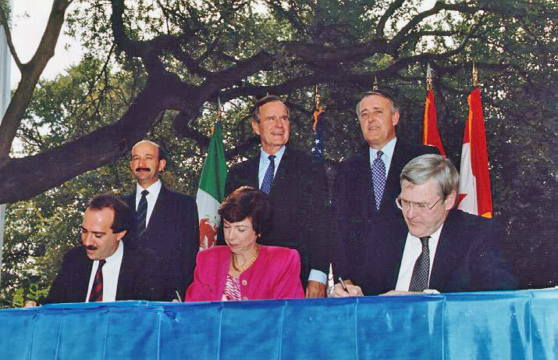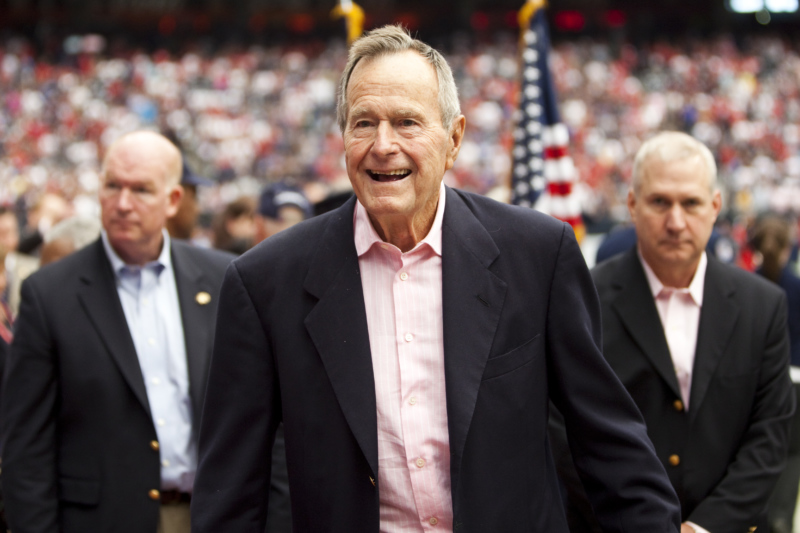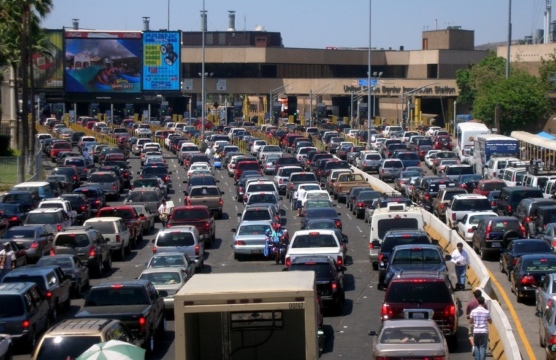
What are the Best Options for Modernizing NAFTA?
How significant of a priority should strengthening NAFTA be as compared to other trade agreements?
President George H. W. Bush and his National Security Advisor, Brent Scowcroft, in their book, A World Tranformed, a review of the Bush administration’s foreign policy making, apologize to their readers for having to omit more than they could include. Among the omissions was anything to do with Latin America. That is a shame, a great loss since Bush, more than any other president in memory, constructively reshaped US policy and practice on a host of critical issues in Western Hemisphere affairs, and put in place some of his most enduring achievements
In 1988, the year Bush was elected, the Inter-American Dialogue issued a report that painted a grim picture of Latin America, and its shaky, often tense relationship with the US. The region was still battling a prolonged debt crisis that had undermined economic growth for most of the 1980s, which came to be known as the “lost decade.” Despite some encouraging peace initiatives, brutal civil wars were relentlessly battering Central America. While most of Latin America, after some twenty years of predominantly military rule, had restored constitutional democracy, the new democracies were threatened by their crushing economic burdens, weakened and damaged political institutions, and the continuing threat of further military interventions. For its part, the US was viewed, often justifiably, by many in Latin America as a regressive force, that had caused or contributed to all of these problems and was more of an obstacle than an aid to their resolution. And, it is true that Washington had supported some of the coups that brought military governments to power, and had maintained cordial relations with most of the region’s military or dictatorial regimes, though the US did break with Pinochet regime in Chile in Reagan’s second term. The US was widely viewed Latin America as at least partly responsible for Central America’s prolonged civil wars, and for blocking the route to their resolution. The US cannot be faulted for Latin America’s debt crisis, but Washington could certainly have done more to assist the recovery of the region’s troubled economies.
Coming to power at the end of the Cold War and the collapse of the Soviet Union, the Bush administration substantially reordered US policy in the Americas. It downplayed the US’s long preoccupation with security matters and the dangers of communist encroachment in the region, and gave new attention to economic cooperation, broader regional integration, AND the strengthening of democracy. At the tail end of Bush’s term in office in 1992, according to another Dialogue report, the opportunities for sustained cooperation among Western Hemisphere nations had never been greater. The report noted that Latin American concerns about Washington’s dominance had subsided along with fears of further US unilateral interventions. Across the Americas, the report noted, interests and values were converging. In retrospect, the Dialogue may well have exaggerated the warming of US-Latin American ties and the prospects for ever closer collaboration. Still several dramatic policy changes were introduced during the Bush presidency, and produced some fundamental alterations in inter-American relations, particularly the shift from unilateral initiatives framed in Washington to enhanced emphasis on multilateral approaches to regional challenges.
[...]
How significant of a priority should strengthening NAFTA be as compared to other trade agreements?
How will the change affect the countries’ trade relationship? What will be the economic impact in the United States and Mexico?
Michael Shifter fue entrevistado por Gerardo Torres de El Salvador sobre los temas más destacados en la agenda regional. Entre otros asuntos, Shifter habló sobre el futuro de la paz en Colombia, la crisis política y económica en Venezuela, y el impacto de las elecciones de Estados Unidos en la región.
 AJ Guel / Flickr / CC BY 2.0
AJ Guel / Flickr / CC BY 2.0

